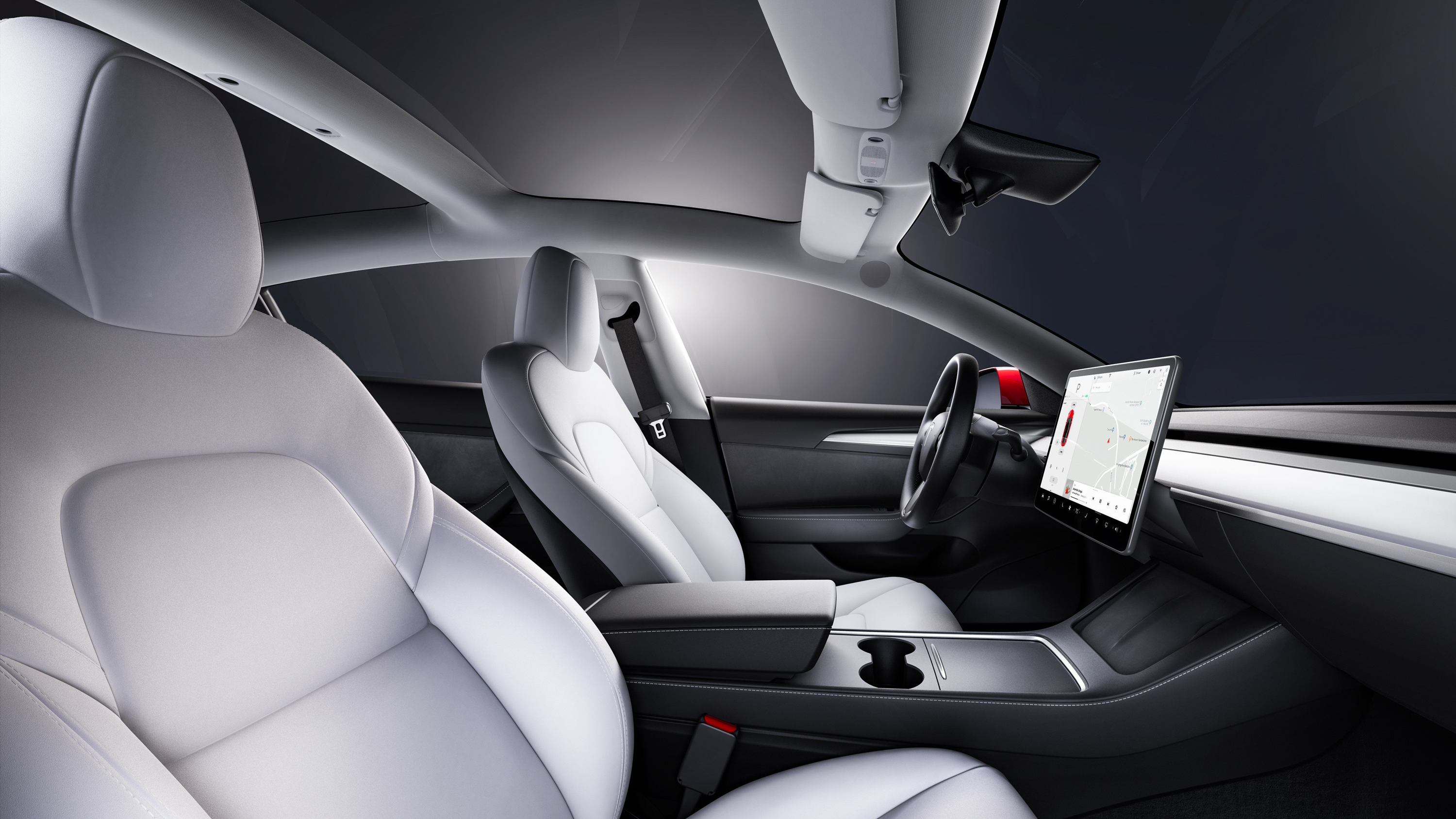Massive Tesla recall sees over 800,000 cars affected by seat belt warning issue
The seat belt chime may fail to activate in limited situations

A total of 817,143 Tesla vehicles are being recalled for a fault with the seatbelt warning system, which could fail to activate in certain situations.
The start of has been 2022 a busy period for Tesla. In between shipping record numbers of cars, the automaker is dealing with a few investigations and recalls, the latest of which was issued on February 1 in regards to the firm's seat belt warning system.
Cars are required to sound an audio seat belt reminder if the driver is unbuckled when the car is started, but some Tesla vehicles allow the chime to stop under certain circumstances.
Owners have found that if they exit the vehicle while the chime is sounding and then reenter the vehicle without buckling, the chime does not sound.
The more than 800,000 cars included in the recall covers all Model 3 and Model Ys produced, as well as select 2021-2022 Model S and Model X vehicles.
The seat belts are still safe
Though the physical seat belts themselves are no less safe because of the chime issue, the NHTSA is concerned that the lack of a warning system could allow drivers to forget to use a seatbelt.
In recall documents posted to its site, the organization states that "if the audible seat belt reminder chime does not activate at the start of a new drive cycle and the driver does not notice the accompanying visual seat belt telltale, the driver may not be reminded to buckle their safety belt and may begin operating the vehicle in an unbuckled state, which could increase the risk of injury."
Get daily insight, inspiration and deals in your inbox
Sign up for breaking news, reviews, opinion, top tech deals, and more.
This is the second Tesla recall announced just this week, though it's refreshing to see a somewhat "normal" reason for the action.
Tesla's other recent recall involved its Full Self Driving (FSD) system's tendency to allow vehicle to perform rolling stops, which is bad for a whole host of reasons, not the least of which is the fact that it's illegal almost everywhere.
Via Business Insider

After working in the technology and software industry for several years, Chris began writing as a way to help people outside of that world understand the sometimes very technical work that goes on behind the scenes. With a lifelong love of all things automotive, Chris turned his attention to writing new vehicle reviews, detailing industry trends, and breaking news. Along the way, he earned an MBA with a focus on data analysis that has helped him gain a strong understanding of why the auto industry’s biggest companies make the decisions they do.